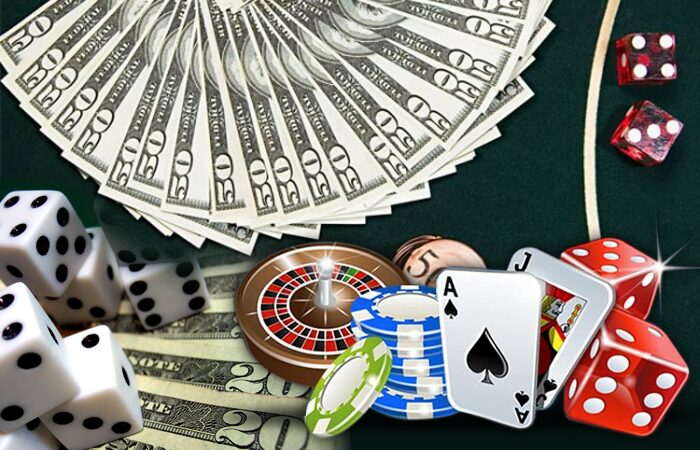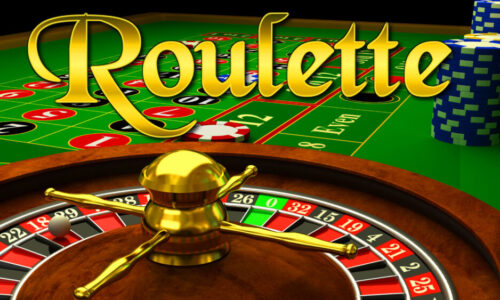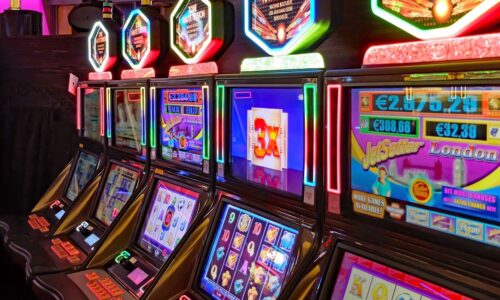Know the Odds
Knowing the odds of a slot machine is an important factor to consider when deciding when it’s time to walk away. Understanding how the machine works, the payouts, and the mathematics behind the game can help you make an informed decision when it comes to putting money in a slot machine. Knowing the odds of a slot machine can help you know the best time to stop playing and save you from making a costly mistake.
Understand the house’s edge
Understanding the house edge is a crucial element to slot machine play. The house edge is the amount of each bet that the casino will retain over time as its profit. While slot machines may have high payout rates, they also have a high house edge — meaning that the odds are always in the favor of the casino.
Slot machines often use symbols on their reels to determine payouts and they also rely on a system called Random Number Generation (RNG). When playing these slots it’s important to understand how RNG works and what your chances are of hitting a particular symbol combination.
Calculate your expected losses

Playing slot machines can be an enjoyable form of entertainment. But like any game of chance that involves money, it comes with risks. Before you sit down at a slot machine, it is important to understand the odds and expected losses. Taking the time to calculate your expected losses can help you manage your bankroll wisely and make informed decisions.
Set Limits
Knowing when to walk away from a slot machine is an important part of any gambler’s strategy. Setting limits is one way to help you stay in control and keep your spending at a manageable level. Setting limits can include deciding on how much money you’re willing to spend, as well as how much time you want to spend at the slot machine. This can help you stay focused, reduce the risk of getting into financial trouble, and set yourself up for success.
Having a budget for losses is an important part of having a successful gambling experience. Although it can be difficult to walk away from a slot machine, it’s important that you do so when your budget has been reached or gone over. Consider setting yourself an amount that you can afford to lose, and withdraw from play when this amount has been reached. Alternatively, if you still feel fortunate, check the slot-hunter.de and set your budget such that your theoretical expected losses are within your limit.
Set a time limit for playing
Setting a time limit for your slot machine play is a great way to ensure that you stay in control when gambling. Decide on the amount of time you can afford to spend playing slots, and then make sure to stick with it. Once your time limit has expired, immediately walk away from the machine; do not be tempted to keep playing until you’ve used up all of your allocated funds.
Recognize Signs of Addiction

Playing at slot machines can be highly entertaining but it is important to recognize the signs of addiction. Knowing when to walk away is a crucial part of playing safely. If you notice yourself becoming increasingly dependent on the slot machine or becoming obsessed with winning, it is time to start paying attention to the warning signs.
It’s important to recognize when you are becoming emotionally dependent on slot machines, as this can be a sign of addiction. It is natural for people to get excited and tense up when playing, but if the amount of tension, worry, and physical concentration increase exponentially with each round of betting, this is an indication that the player may be addicted. Players who become addicted will often feel increasingly agitated and impatient when not at the slot machine. Ask yourself: Am I irritable or anxious without being around the slots? If so, it’s time to step away.
Take breaks
If you find yourself spending too much time in the slot machine gaming area, it’s time to take a break. Taking regular breaks can help you recognize when you’re getting your adrenaline kick from gambling and if you’re starting to become more emotionally rather than logically invested in the activity. Make sure to leave the premises between each day of play, or spend at least an hour away from the slot machines before returning for more gameplay. If friends or family members know about your gambling habits, make sure to tell them of your plan so that they can hold you accountable and point out any warning signs if needed. Additionally, watch for signs that you may need professional help. If a loved one has expressed serious concern about your slot machine gaming habits or if it has interfered with work or daily life commitments, it may be time to seek treatment.
Stop playing when you reach your budget

It is important to set both a budget and a time limit before you start playing slots. Your budget should be determined by how much money you are willing to lose, or how much of your winnings you are prepared to keep. Once your budget is reached, it’s time to stop playing. Sticking with this limit will help you stay in control of your bankroll and ensure that your gambling doesn’t lead to more serious issues.
Seek Help
If you’re feeling overwhelmed in a casino and think you need help, one of the most important steps to take is to seek professional help. Gambling addiction can be a serious issue for some people and help is often necessary. This can be done by visiting a gambling helpline, setting up an appointment with a therapist, or attending Gamblers Anonymous meetings. All of these are valid options to seek help for someone who has a gambling problem.
Conclusion
Overall, seeking help should not be seen as an overwhelming challenge but rather a step toward overcoming an addiction that eventually leads people toward safer behaviors that will not place them at risk financially or emotionally again down the line. If willpower alone has failed in your attempts at quitting slot machines then it’s possible that more serious forms of treatment may be necessary in order to get back on track.




